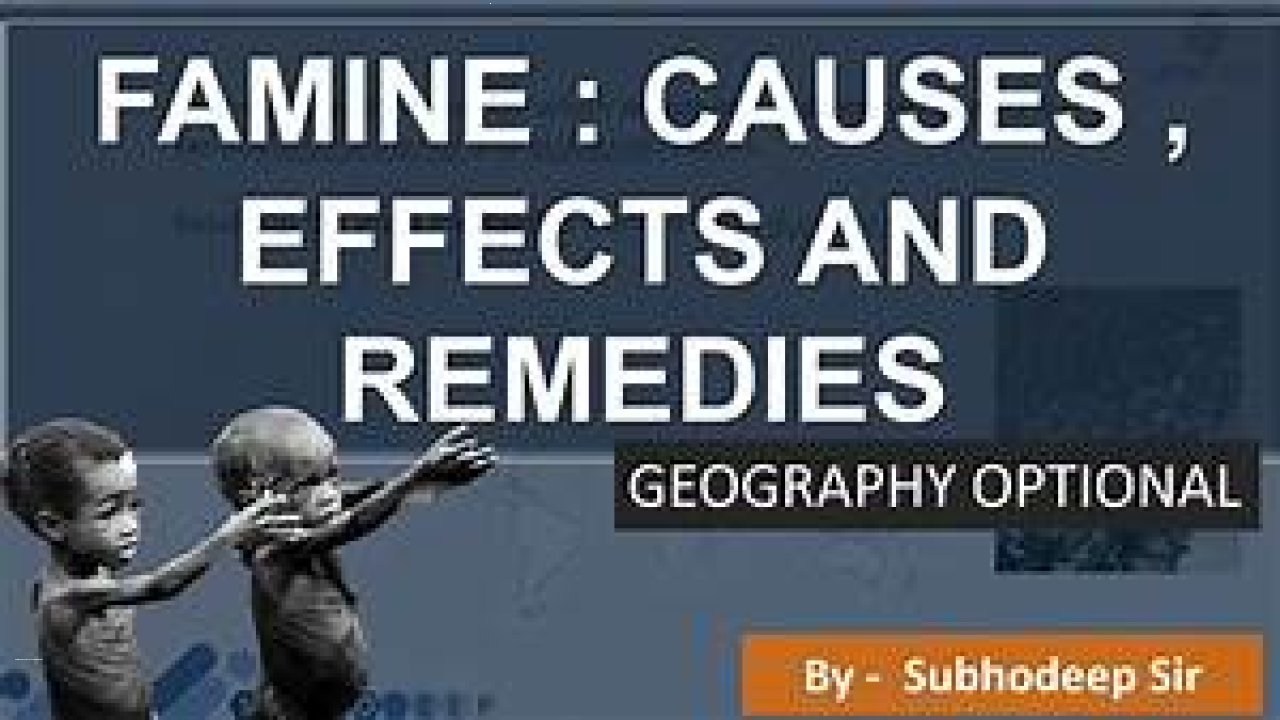Famine : Causes, Effects and Remedies
Famine is a severe shortage of food that results in widespread hunger and malnutrition, often leading to high rates of mortality. Famine can occur as a result of natural disasters, political conflict, economic instability, and other factors. Understanding the root causes of famine and implementing effective strategies to prevent and address it is critical for promoting food security and reducing poverty.
Meaning of Famine
Famine is a severe shortage of food that results in widespread hunger and malnutrition, often leading to high rates of mortality. Famine can occur as a result of a range of factors, including natural disasters, political conflict, economic instability, and other factors.
History of Famine
Famine has been a persistent issue throughout human history, with numerous examples of famine occurring in various regions of the world. For example, the Irish Potato Famine of 1845-1852, which was caused by a potato blight, resulted in the deaths of over one million people. In more recent times, famines have occurred in Ethiopia, Somalia, Sudan, and other regions of Africa.
Causes of Famine
- Natural Disasters: Natural disasters, such as droughts, floods, and hurricanes, can disrupt food production and distribution, leading to food shortages and famine.
- Political Conflict: Political conflict and instability can disrupt food production and distribution, leading to food shortages and famine.
- Economic Instability: Economic instability, such as inflation and currency devaluation, can lead to high food prices and reduced access to food, leading to famine.
Effects of Famine
- Malnutrition: Famine can lead to malnutrition, which can cause stunted growth, weakened immune systems, and other health problems.
- Mortality: Famine can lead to high rates of mortality, particularly among vulnerable populations such as children and the elderly.
- Social and Economic Impacts: Famine can have significant social and economic impacts, including reduced productivity, increased healthcare costs, and lost economic opportunities.
Remedies for Famine
- Early Warning Systems: Early warning systems can help identify potential food shortages and allow for early intervention to prevent famine.
- Agricultural Investments: Investments in agricultural infrastructure and technology can help increase food production and reduce the risk of famine.
- Food Aid and Assistance: Food aid and assistance can provide essential food and nutrition support to vulnerable populations during times of crisis.


